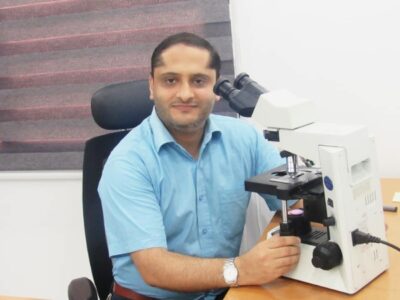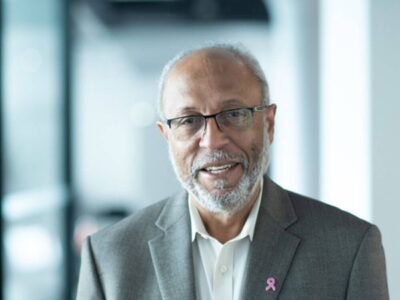Michelle A. Rudek, a professor of oncology and director of the Analytical Pharmacology Shared Resource at Sidney Kimmel Comprehensive Cancer Center, died Nov. 7. She was 51.
John Carpten, when he was named director of the City of Hope Comprehensive Cancer Center in April, took over a massive, newly formed national oncology network—the first of its kind.
On Oct. 13, 2023, the world mourned the loss of Dr. Mohammed Dabbour, an exceptionally kind and dedicated individual with aspirations. I was deeply saddened to learn about the tragic passing of a colleague, along with several members of his family, including his son and father.
George Santos, founder of Johns Hopkins University Bone Marrow Transplantation Program, pioneered many of the innovations used in bone marrow transplantation that are relevant today—but he didn’t get nearly as much credit as others working in the field.xxx:more
About 12 children with cancer or other blood disorders have been evacuated, with their companions, from the Gaza Strip in the occupied Palestinian territory to Egypt and Jordan so they may continue their treatment safely. Additional children are expected to be evacuated for cancer treatment as part of this initiative.
This exhibition traces the history of efforts by the tobacco industry to encourage women to smoke cigarettes.
A letter to the editor by The Philadelphia Inquirer’s James Neff raises concerns about conflicts of interest in a recent Guest Editorial published in The Cancer Letter. The authors and The Cancer Letter editor respond.
Richard Edelson began his career at NCI, where he was training to become a cancer immunologist.
This week came word of the passing of Franklyn Prendergast, professor emeritus of the Mayo College of Medicine and Science and director emeritus of the Mayo Clinic Comprehensive Cancer Center.
On Oct. 12, 2023, the world lost a brilliant mind, a dedicated physician and an extraordinary individual.














